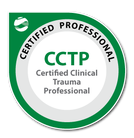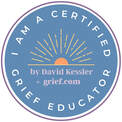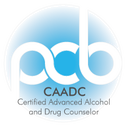|
“My best friend is the one who brings out the best in me.” –Henry Ford
There is a big difference between the disease of addiction and other health related diseases. When someone battling cancer has a relapse they are often surrounded with love and support, but when someone suffering from addiction has a relapse, most people cut them off and avoid them. The love given to someone dealing with cancer is withheld from some going through addiction. It is not easy to be around someone struggling with addiction, but does shame and isolation work to get them to stop using? I was at a conference last week and Brené Brown asked a very powerful question. “Does shame and isolation make people more or less dangerous?” Think about the implications of that question. We have realized for decades that shaming hurts people, yet it is one of the most frequently used techniques to control behavior. What we all long for is connection. It is the support piece that is often missing and what we, as humans, crave. We are wired for connection. It is part of our genetic makeup. From the time we are born until the time we die, we look for connection with others to share this experience of life. Somehow in our society we seem to have adopted a belief that we need to pull ourselves up by our bootstraps and go on alone. While it is true that we are the only one who can choose our behavior, having someone to talk to and share experiences helps to shift our perspective. Successful recovery includes forming a positive social support network. We all need at least one close friend to be open and honest with in our lives. We need that one person we can talk to when we have entered a ‘shame storm.’ It is someone who can help remind us that we can do better next time and help us to see that all is not lost. Social support is a critical piece of successful recovery and successful living. If you know someone who is suffering from addiction, take notice if people around them are using shame or isolation to try to change their behavior. Reach out and provide a connection. It may save their life.
0 Comments
“All the mistakes I ever made were when I wanted to say ‘No’ and said ‘Yes.'” — Moss Hart
“But, if I say ‘no’ they won’t like me!” Julie recently told me. We discussed what makes it hard for her to say ‘no.’ She told me it is her responsibility to put everyone else’s needs before hers. I asked if she feels the need to please others before taking care of herself may have anything to do with the current addiction she is suffering from. She noted that she hadn’t thought about it before. The need to please is common, especially in females. While there are many reasons why clients have a hard time saying ‘no,’ one of the most common reasons I hear is that they believe friendship is based on doing things for other people. There is a belief that the friendship isn’t really about being with a person, but is more a way to get needs met. They look for people that can give them what they need and then do favors for them, expecting to get their own needs met. For people who don’t drive, they may befriend a person with a vehicle. They start doing favors and giving the person things so that they can get the ride when they need it. This ‘banking of favors’ does not usually end well. Often, when they have a need and expect the favor in return, it is met with rejection. Since they have based the friendship on balancing of needs, when they are let down by someone they end the friendship and go looking for someone else who will be able to meet their needs. This becomes a perpetual problem. Another reason is that they feel their needs are secondary to other people. They justify how their children’s or spouse’s needs are more important than theirs. Minimizing their own needs leads to resentment. When they do express a need and it is rejected there is a reinforcement that their needs are not important enough to be met. One of the things I discuss is how in a healthy family system, everyone’s needs are equal. There can be negotiation and compromise, but denial of anyone’s needs is never acceptable. When someone has sacrificed their needs for the family it is often difficult to start saying ‘no.’ One of the things I discuss is starting to set better boundaries with other people. Boundaries are not cutting people off, but are new agreements that can get made between two people. It is respecting the new agreement so that everyone’s needs are met. When I worked with Julie, one the things I had her work on was to set a goal to make at least one person mad each day. If she made more than one person mad in a day that was a bonus! I asked her to consciously choose whether she wanted to say ‘yes’ or ‘no.’ It took a lot of courage for her to start saying ‘no.’ She told me that after I gave her this challenge, she got a call from her brother asking her to babysit her niece. She told me she had other plans, but before would have rearranged her plans. She got up the courage to say ‘no,’ fully expecting him to be mad at her. She discussed how surprised she was that he just said, ‘okay.’ It was empowering for her to realize that he still liked her! Setting boundaries and choosing ‘yes’ or ‘no’ is a gift to yourself. Other people will respect you more when you negotiate agreements to get everyone’s needs met. Don’t be afraid to say ‘no.’ People will still like you! “Life is not linear; you have ups and downs. It’s how you deal with the troughs that defines you.” –Michael Lee-Chin
After years of counseling people in addiction and their families, the question I hear most often from loved ones is ‘why don’t they just stop using?’ Addiction is complex and although it seems like the answer is easy, it is anything but simple for the person dealing with addiction to stop. While there are no cures for addiction, research has shown that counseling, inpatient treatment and support groups are beneficial for many people. One of the ways I have found to explain addiction and recovery to my clients and their families is to envision a ‘Chutes and Ladders’ game board. The work of recovery is like going up the ladder. Along the way though, there are many opportunities to go right back down the chute of relapse. In order to keep them moving up the ladder, I discuss the importance of having a vision or goal they are working towards. Climbing the ladder day after day is hard work. It would be much easier to take a break or go down the slide, but knowing why they are doing the work of recovery is critical. One of the things I reinforce to my clients is that they can’t be doing the work of recovery for anyone except themselves. Many clients tell me that they are getting clean for their children or significant other. While I agree that their loved ones are important, the more important thing is to recognize that they are doing the work to be the best mother, father or partner they can be. It really is for them to be the best they can be and give their best to their loved ones. So why do some clients seem to climb the ladder relatively quickly and easily, while others struggle and fall down the chutes of relapse time and time again? One of the things I discuss with my clients is how there are sticking points along the way. Many clients seem to do well for a time and then begin to backslide or self-sabotage. I believe that these sticking points are places where limiting beliefs reside. Many clients begin doing well and then the voice of doubt or fear arises. The voice reminds them that they don’t deserve to be happy because of all the pain they caused or because of what they did to their child or any other variation of doubt and fear. The louder this voice becomes, the closer to the downward slide they get. When the voice is all they hear, it only takes a little push to go right down. Challenging the voice of doubt and fear, forgiving themselves and learning to love themselves despite the past, dissolves the sticking points and allows the client to continue the climb of recovery. Helping a loved one in recovery is never easy. Reminding the person that they are worthy and deserving of love is one of the best ways to help them move through the sticking points and continue the lifelong journey of recovery. “People who have never had an addiction don’t understand how hard it can be.” –Payne Stewart
Working in a methadone clinic over the past several years has given me a unique perspective on addiction. I have been privileged to hear heartbreaking stories of addiction and witnessed firsthand the devastating effects it has on the entire family. Loving someone struggling with addiction is perhaps one of the hardest things there is to do. The person that you once loved seems to be replaced by a foreign entity. It is hard to know who you are talking to. The addiction masquerades as the loved one and it is unbearable to discover that the person you once knew is unreachable. So, what do you do if you love someone who is suffering from addiction? First, know that the person in addiction is not the person you love. I always think of us as having different parts that take over in different situations. There are loving and gentle parts, as well as angry and demanding parts. There is a different part of me in control when I’m at work then when I’m at home with my children. When someone is struggling with addiction, it is the addict part that has taken control and seals off the other parts. Sometimes we can get glimpses of the real person, but during active addiction it is difficult to know if you are talking to the addict part or breaking through to your loved one. Be cautious and discerning when talking to your loved one. Remember that the lies and manipulative behaviors are the addict part which has taken control and are not behaviors the person you love would do. Second, know that the person you love did not intend to become addicted. There is not a single client that I have worked with that told me they wanted to become addicted to heroin. Of course, they made an initial choice to try it, but once the addiction took hold, they lost all power to choose. This is why addiction is considered a disease. The urge and compulsion to use is so strong that the choice to stop is blocked. Know that if addiction were just a matter of willpower, there would be far fewer people suffering. It takes support and understanding to break through addiction. It is complex and there are no easy answers or solutions. Third, understand that the person in addiction is suffering, too. Addiction creates a downward spiral. There is usually a point when the person in addiction decides that they want to stop. They tell themselves that they are going to stop, but the compulsion becomes so strong that they can’t control it. After they use they feel guilty about it and the pain becomes stronger. The stronger the pain, the stronger the compulsion to use. The spiral continues until they hit the proverbial ‘rock bottom’ and seek help or treatment of some kind. Fourth, don’t give up. Loving someone struggling with addiction is painful. There is no denying that, but when the person hits their ‘rock bottom’ they need love and support in order to heal. Set extremely firm boundaries. Enabling and making excuses for the person in addiction does not help them. They need to experience the consequences of their behavior choices. This is extremely difficult to accept because death is a very real possible consequence. Setting boundaries does not mean withholding love and support from them. Trust has to be earned back. It is a slow process, but don’t give up on them! Get family counseling to help the entire family heal and open the lines of communication back up. Finally, take care of yourself. Loving someone with an addiction is consuming and feels helpless. You cannot stop or control a loved one’s addiction. The person in addiction is the only one who has that power. The more worn down you become, the less helpful it is for everyone. Find your own hobbies, attend Al-Anon meetings, spend time in nature or laugh with friends. It is not selfish to take care of your own needs. By practicing your own self-care, you are able to help the family heal and move through the recovery process. Your family deserves the best you can give, which only comes when you take care of yourself. The journey of addiction is never easy. It is a dark chapter for many families, but it doesn’t have to be the whole book. You, as a family, get to write the rest of the story. It can have a happy ending. “The most important thing in communication is hearing what isn’t said.” –Peter Drucker
Last week I discussed blocks to communication. This week we will explore five ways to open the lines of communication.
|
Archives
April 2020
Categories
All
|
 RSS Feed
RSS Feed




